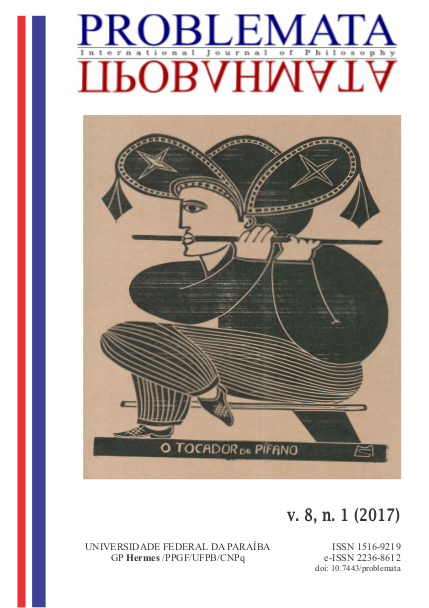EL FETICHE JURÍDICO DEL CAPITAL: EXPANSIÓN IMPERIALISTA DE SU HEGEMONÍA SISTÉMICA A TRAVÉS DE LOS ESTUDIOS DE DERECHO
DOI:
https://doi.org/10.7443/problemata.v8i1.33633Keywords:
El fetiche del derecho como problema existencial y académico, “Iusmaterialismo” como método de investigación jurídica, Derecho como praxis.Abstract
Este trabajo nace del enfrentamiento diario con el fetiche del derecho como problema existencial y académico. Se ha convertido en objeto de investigación encontrar respuesta a la siguiente pregunta: ¿qué son los estudios del derecho en relación con el fetiche jurídico del capital? Esta pregunta se desagrega en otros muchos interrogantes y - como queda implícito en la pregunta - el problema tiene alcance regional. El formalismo normativista positivista es el horizonte jurídico hegemónico en América Latina, y también compartido al menos por España y Portugal. Pero ¿será igual fuera de América Latina y de algunos países europeos mediterráneos? Las preguntas tienen pretensión de encontrar respuestas, si es que las hay, más allá de una u otra región o continente. Delimitado y formulado el problema, la búsqueda de explicación a los hechos problemáticos, caóticos y confusos, se va a intentar en un nuevo horizonte paradigmático: el “iusmaterialismo”, como método de investigación jurídica, así como teoría ontológica de la realidad jurídica. El “iusmaterialismo” entiende la realidad ontológica del derecho, objeto de la investigación, como un conjunto de relaciones sociales caracterizadas por el poder; en función de la vida de los pueblos y la naturaleza, y su reproducción. Define al “derecho como una praxis (acción) con poder real de satisfacción del sistema integrado de necesidades y capacidades de los pueblos y la naturaleza, positivados como bienes jurídicos autónomamente por la comunidad, con el apoyo de la fuerza tutelar coactiva de la misma”.
Downloads
Downloads
Published
Issue
Section
License
Authors who publish with this journal agree to the following terms:
- Authors retain copyright and grant the journal right of first publication with the work simultaneously licensed under a Creative Commons Attribution License that allows others to share the work with an acknowledgement of the work's authorship and initial publication in this journal.
- Authors are able to enter into separate, additional contractual arrangements for the non-exclusive distribution of the journal's published version of the work (e.g., post it to an institutional repository or publish it in a book), with an acknowledgement of its initial publication in this journal.
-
- Authors are permitted and encouraged to post their work online (e.g., in institutional repositories or on their website) prior to and during the submission process, as it can lead to productive exchanges, as well as earlier and greater citation of published work (See The Effect of Open Access).





